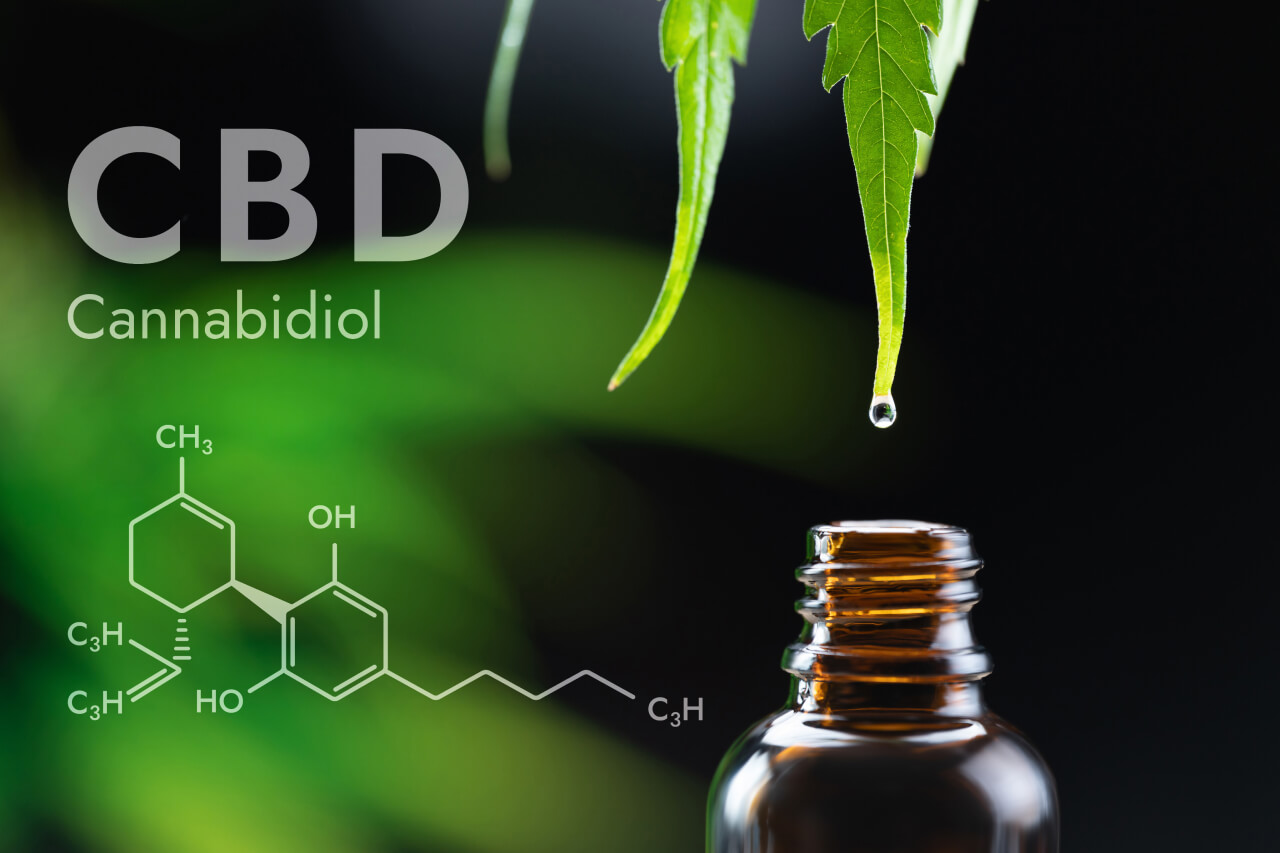CBD oil (cannabidiol) is a natural product that comes from the cannabis plant. It has many benefits for your health and well-being, but it also has some risks and limitations.
CBD oil has gained immense popularity in recent years for its potential therapeutic benefits. Derived from the hemp plant, CBD (cannabidiol) is a non-psychoactive compound that is known for its various health-promoting properties. From pain relief to reducing anxiety symptoms, the uses of CBD oil are extensive and diverse. However, as with any natural remedy, it is essential to have a comprehensive understanding of its benefits, potential side effects, and the optimal dosage to experience its full potential.
CBD oil is typically extracted from hemp plants, which contain high levels of CBD and trace amounts of THC (less than 0.3% as per legal standards). The oil is commonly mixed with a carrier oil, such as coconut or hemp seed oil, for better absorption and application.
Potential Health Benefits:
CBD (cannabidiol) oil is a popular natural remedy that has gained significant attention for its potential health benefits. While research is still ongoing, there is evidence to support several potential benefits of CBD oil.
Here are some of the key benefits associated with CBD oil:
Pain relief: CBD oil may help alleviate chronic pain by interacting with receptors in the endocannabinoid system involved in pain regulation. It has shown promise in reducing pain associated with conditions such as arthritis, multiple sclerosis, and neuropathic pain.
Anxiety and depression management: CBD oil may have a calming effect on the central nervous system, potentially reducing symptoms of anxiety and depression. Some studies have suggested that CBD could be a viable treatment option for anxiety disorders, including social anxiety disorder and post-traumatic stress disorder (PTSD).
Sleep improvement: CBD oil may have a positive impact on sleep quality by promoting relaxation and reducing insomnia. It may help individuals fall asleep faster and experience more restful sleep without the grogginess associated with some sleep aids.
Neuroprotective properties: CBD oil has shown potential as a neuroprotective agent, meaning it may help protect the brain and nervous system from damage or degeneration. This suggests it could be beneficial for conditions such as epilepsy, Alzheimer’s disease, Parkinson’s disease, and multiple sclerosis.
Anti-inflammatory effects: CBD oil has been found to possess anti-inflammatory properties, which could make it a potential natural remedy for managing inflammation-related conditions such as arthritis, inflammatory bowel disease (IBD), and certain skin conditions like acne.
Potential for addiction management: CBD oil may have a role in managing addiction by interacting with brain receptors involved in addiction pathways. It has been explored as a potential treatment for substance abuse disorders, including opioids and tobacco.
CBD products are derived from cannabidiol, a compound found in the Cannabis sativa plant. CBD, or cannabidiol, is one of many active compounds, called cannabinoids, found in cannabis. Unlike its counterpart THC (tetrahydrocannabinol), CBD does not have psychoactive properties, meaning it does not produce a “high” feeling.
Cannabidiol Products
CBD products come in various forms, including oils, tinctures, capsules, edibles, topicals, and more. They are typically used for their potential therapeutic effects, which may include:
Pain relief: CBD has been studied for its potential analgesic properties and its ability to reduce chronic pain, inflammation, and discomfort associated with various conditions, such as arthritis, migraines, and neuropathic pain.
Anxiety and stress management: Many people use CBD products to help manage anxiety, stress, and promote relaxation. CBD may have potential anxiolytic properties, though further research is still needed to fully understand its effects.
Sleep improvement: CBD has been reported to have a calming effect and may assist with sleep-related issues, such as insomnia or disrupted sleep patterns.
Epilepsy and seizures: CBD has gained particular attention for its potential anti-seizure properties, with the FDA approving a CBD-based medication called Epidiolex for the treatment of certain seizure disorders.
Skin conditions: CBD topicals, such as creams or balms, are used for localized application and may offer relief from skin conditions like acne, eczema, or psoriasis.
It’s important to note that while CBD is generally considered safe, it can interact with other medications, and its effects may vary among individuals. It is advisable to consult with a healthcare professional before using CBD products, especially if you have any existing medical conditions or are taking other medications.
As regulations differ across jurisdictions, it is essential to ensure that CBD products are legal and obtained from reputable sources to guarantee their quality and safety.
Long Side Effects:
CBD, or cannabidiol, is a natural compound derived from the cannabis plant. While considered generally safe for use, there are potential long-term side effects that individuals should be aware of. It’s important to note that research on the long-term effects of CBD is still in its early stages, and more scientific studies are needed to fully understand its impact. However, based on available information, potential long-term side effects of CBD may include:
Liver damage: Some studies have suggested that high doses of CBD may lead to liver toxicity. This risk may be more significant in people already diagnosed with liver diseases or those taking medications metabolized by the liver.
Changes in appetite and weight: CBD has been known to affect appetite, leading to either an increase or decrease in food intake. Prolonged use of CBD could potentially result in weight gain or weight loss.
Medication interactions: CBD can interact with certain medications, specifically those metabolized by the liver enzymes known as cytochrome P450. Long-term use of CBD may affect the metabolism of these medications, potentially increasing or decreasing their effectiveness.
Respiratory issues: While CBD is most commonly consumed orally or topically, there is a potential risk of respiratory issues if smoked or vaped. Continued inhalation of any substance can lead to respiratory problems over time.
Tolerance and withdrawal: Like many substances, long-term use of CBD may lead to tolerance, where higher doses are needed to achieve the same effects. Abruptly stopping CBD after long-term use could potentially result in withdrawal symptoms such as irritability, sleep disturbances, and mood changes.
It’s important to consult with a healthcare professional before starting any long-term use of CBD, especially if you have pre-existing medical conditions, take medications, or have concerns about potential side effects. Additionally, sourcing CBD products from reputable manufacturers and adhering to recommended dosages can help mitigate any potential risks.
Conclusion
CBD oil has emerged as a popular natural remedy with potential therapeutic benefits. Its non-psychoactive compound, cannabidiol (CBD), has shown promise in various areas of health and wellness.
Research suggests that the oil may have positive effects in managing conditions such as chronic pain, anxiety, depression, epilepsy, and inflammation. It interacts with the body’s endocannabinoid system, which plays a crucial role in maintaining balance and regulating various bodily functions.
While it’s generally considered safe and well-tolerated, it is important to note that more research is needed to fully understand its long potential interactions with other medications. The dosage and quality of CBD oil can vary, so it is essential to purchase products from reputable sources and consult with a healthcare professional for proper guidance.
Furthermore, different individuals may respond differently, and it is not a one-size-fits-all solution. It is always advisable to start with a low dosage and gradually increase as needed, while closely monitoring the effects on one’s body.
In summary, CBD oil holds promise as a natural remedy for various conditions, with an increasing body of research supporting its potential benefits. However, it is essential to exercise caution, seek professional advice, and engage in further research as this field continues to evolve.
You can check more of our articles Here
FAQs
What is CBD oil?
CBD oil is a natural oil derived from the hemp plant. It contains cannabidiol (CBD) as the main active ingredient.
What are the potential benefits of CBD oil?
CBD oil is thought to have several potential health benefits, including pain relief, reduction of anxiety and depression symptoms, alleviation of cancer-related symptoms, and potential neuroprotective properties. However, more research is needed to fully understand its effects.
Are there any side effects of CBD oil?
While CBD oil is generally well-tolerated, some individuals may experience side effects such as dry mouth, drowsiness, changes in appetite, or diarrhea. It is always advisable to start with a low dosage and consult a healthcare professional if you have any concerns.
How do I choose a CBD oil product?
When selecting a CBD oil product, consider factors such as the brand’s reputation, the source of hemp, extraction methods, and third-party testing to ensure quality and purity. It is best to choose products that have undergone independent lab testing.
How should I take CBD oil?
CBD oil can be consumed orally, sublingually (under the tongue), topically, or inhaled through vaporization. The method of consumption may vary depending on personal preference and the desired effects.
Can I use CBD oil while taking other medications?
It is important to consult with a healthcare professional before using CBD oil alongside other medications. CBD (cannabidiol) can potentially interact with certain medications due to its effects on the body’s metabolism and the way it is processed in the liver.





